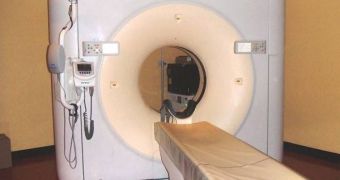Magnetic resonance is one of the most commonly used medical techniques in modern hospitals, helping physicians diagnose conditions that would otherwise remain hidden even to the most well-prepared experts. First-stage cancers and tumors, in the body or in the brain are all revealed by MRI, and a spin-off of the technology, functional MRI (fMRI), is capable of deciphering brain patterns, as well as which portions of the brain are used for specific functions. Now, experts seek to further augment the technology, to become even more accurate and insightful.
Scientists at the University of York have just recently been able to devise a method that significantly boosts the observing capabilities of MRI, and that they hope will provide doctors with the ability to scan for even more conditions in a single check in the future, coceivably at even lower costs than one of these procedures involves today. Details of the new technique are published in the most recent issue of the scientific journal Science.
“Our method has the potential to help doctors make faster and more accurate diagnoses in a wide range of medical conditions. The technique could ultimately replace current clinical imaging technologies that depend on the use of radioactive substances or heavy metals, which themselves create health concerns,” University of York Neuroimaging Centre Director Department of Psychology Professor Gary Green explains.
Results from tests relying on Nuclear Magnetic Resonance (NMR) could also come in a lot faster than they do today, thanks to the new sensitivity boost. “We have been able to increase sensitivity in NMR by over 1000 times so data that once took 90 days to record can now be obtained in just five seconds. Similarly, an MRI image can now be collected in a fraction of a second rather than over 100 hours,” UY Center for Magnetic Resonance Director Department of Chemistry Professor Simon Duckett adds.
“This development opens up the possibility of using NMR techniques to better understand the fundamental functions of biological systems,” he stresses. “This technological advance has the potential to revolutionize the accessibility and application of high quality medical imaging to patients. It will bring significant to benefits to diagnosis and treatment in virtually all areas of medicine and surgery, ranging from cancer diagnosis to orthopedics and trauma. It illustrates the enormous success of combining high quality basic science with clinical application,” the Dean of the Hull York Medical School, Professor Ian Greer, shares.
“The rapid development of this research from the chemistry bench through to measurement opens up many exciting possibilities to extend this work. The York research team are now seeking partners to help turn this groundbreaking research into commercial and medical applications,” UY Research and Enterprise Office Director Dr. Mark Mortimer concludes.

 14 DAY TRIAL //
14 DAY TRIAL //